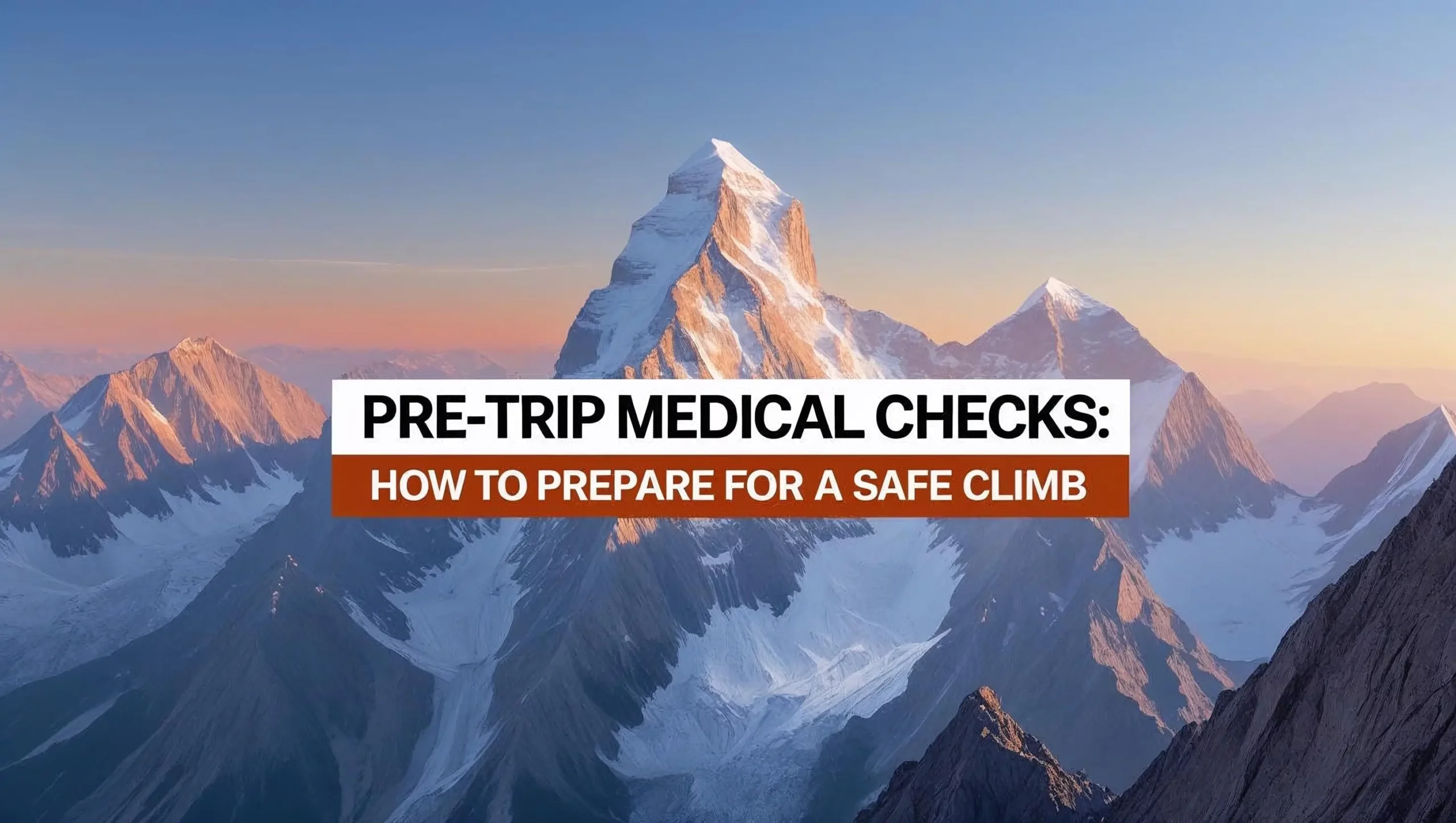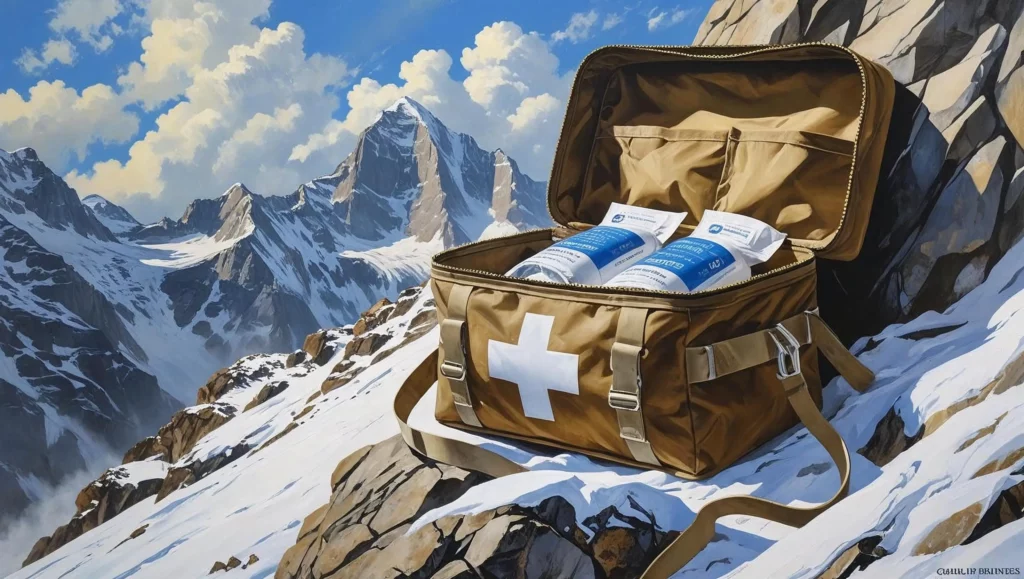The Essential Medical Check Every Climber Needs
When you’re heading into the mountains, preparation goes far beyond gear lists and weather forecasts. Your body is your most important piece of equipment – and making sure it’s ready for the climb is one of the most overlooked yet essential parts of mountaineering preparation.
Whether you’re eyeing your first 4,000-meter peak or gearing up for an 8,000er, a proper pre-trip medical check can be the difference between a successful summit and a dangerous evacuation.

Table of contents
Why Medical Checks Matter
What to Get Checked (and Why)
Bonus: Mental & Emotional Readiness
Practical Tips Before You Go
Why Medical Checks Matter
Mountains are demanding, high-risk environments. Altitude, cold, exhaustion, and isolation all test the limits of the human body. Even a minor, undiagnosed condition can quickly turn serious above the tree line. Medical checks help identify any hidden risks and ensure you’re fit to handle the stresses of altitude and physical exertion.
Remember: a clean bill of health isn’t about ticking a box – it’s about increasing your chances of staying safe, strong, and self-sufficient on the mountain.
What to Get Checked (and Why)
Here’s what a solid pre-expedition medical check should include, especially if you’re climbing above 3,500–4,000 meters:
1. Cardiovascular System
Climbing puts intense pressure on your heart and lungs, especially at altitude. A resting ECG (electrocardiogram) can detect heart rhythm issues, and a stress test may be recommended if you’re over 40, have risk factors, or plan to climb above 5,000 meters.
Ask your doctor: “Am I cleared for sustained high-exertion activity at altitude?”
2. Pulmonary Health
Lung capacity is crucial. Asthma, past respiratory infections, or smoking history should be openly discussed. Spirometry or other breathing tests might be useful if you’ve had issues in the past.
Also worth checking: your risk for HAPE (High-Altitude Pulmonary Edema). Some climbers may benefit from preventative medication.
3. Blood Pressure
Even mild hypertension can become risky at altitude. Make sure yours is stable and well-managed before departure.
4. Bloodwork
A basic blood panel will check for anemia, kidney function, blood sugar levels, and electrolytes. Iron deficiency is more common in endurance athletes and can reduce your ability to acclimatize.
5. Vaccinations and Travel-Specific Risks
If your trip takes you to remote regions, double-check your vaccination status (Hepatitis A and B, Tetanus, Typhoid, etc.) and ask about local health threats-waterborne illnesses, insect bites, or altitude-related complications.
Bonus: Mental & Emotional Readiness
This one isn’t always in the doctor’s office – but it’s just as important. Expedition life can be stressful, especially in isolated conditions with physical exhaustion and uncertainty. If you have a history of anxiety, depression, or other mental health concerns, talk honestly with a medical professional about how to prepare.
Also, consider practicing stress-management techniques like breathwork or mindfulness ahead of your trip. A calm mind is a powerful asset in the mountains.
Practical Tips Before You Go
Do it early. Schedule your medical check 6–8 weeks before the climb to allow time for follow-ups or adjustments.
Bring your itinerary. Show your doctor your planned altitude profile and physical demands.
Carry a medical summary. Especially if you’re climbing in a group, it helps if your guide knows relevant medical history, medications, and allergies.
Know your medications. If using Diamox (acetazolamide) or other altitude meds, understand the dosage, side effects, and timing.
Create a first-aid kit tailored to you. Include any prescriptions, rehydration salts, blister care, antibiotics (if advised), and painkillers you know work for you.

Climb Smart, Not Just Hard
Mountains reward preparation. Getting a proper medical check is not just for beginners or older climbers – it’s for everyone who takes their health and safety seriously.
After all, reaching the summit is never worth gambling your well-being. A few extra steps before departure can mean a much smoother and safer adventure when the air gets thin and the stakes get high.





Comments